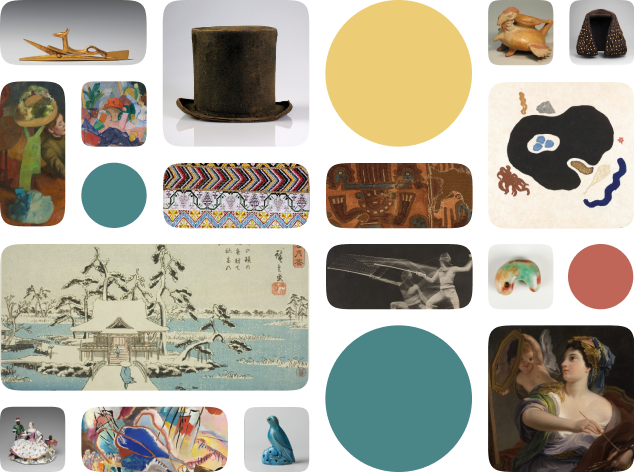Ritual conch shell
Creator Name
--
Cultural Context
Date
Source
About the Work
Cleveland Museum of Art Object Description
A royal temple like Banteay Chhmar was built for performing rituals and to honor images of gods, Buddhas, and other sacred or enlightened beings for the sake of the kingdom’s protection and ongoing prosperity. Conch shells were blown at the start of rituals to make the sound corresponding to the syllable om.
The dancing figure of Hevajra, a Buddhist being of enlightenment with eight heads, sixteen arms, and four legs, has been worked into the bronze embellishment of the shell. Hevajra was elevated to a prominent position in Khmer Buddhism of the Angkorian period as the standard figure denoting the practice of rituals prescribed in a text called the Hevajra-tantra. The tripod stand with three serpents is probably not original ...
The dancing figure of Hevajra, a Buddhist being of enlightenment with eight heads, sixteen arms, and four legs, has been worked into the bronze embellishment of the shell. Hevajra was elevated to a prominent position in Khmer Buddhism of the Angkorian period as the standard figure denoting the practice of rituals prescribed in a text called the Hevajra-tantra. The tripod stand with three serpents is probably not original ...
Work details
"--" = no data available
Title
Creator
--
Worktype
Cultural Context
Material
Dimensions
Technique
--
Language
--
Date
Provenance
Style Period
--
Rights
Inscription
--
Location
--
Source
Subjects
--
Topic
--
Related Content
--
All Works in Curationist’s archives can be reproduced and used freely. How to attribute this Work:
Ritual conch shell, 1100s, Cleveland Museum of Art. CC0.
Help us improve this content!
Let our archivists know if you have something to add.
Save this work.
Start an account to add this work to your personal curated collection.
